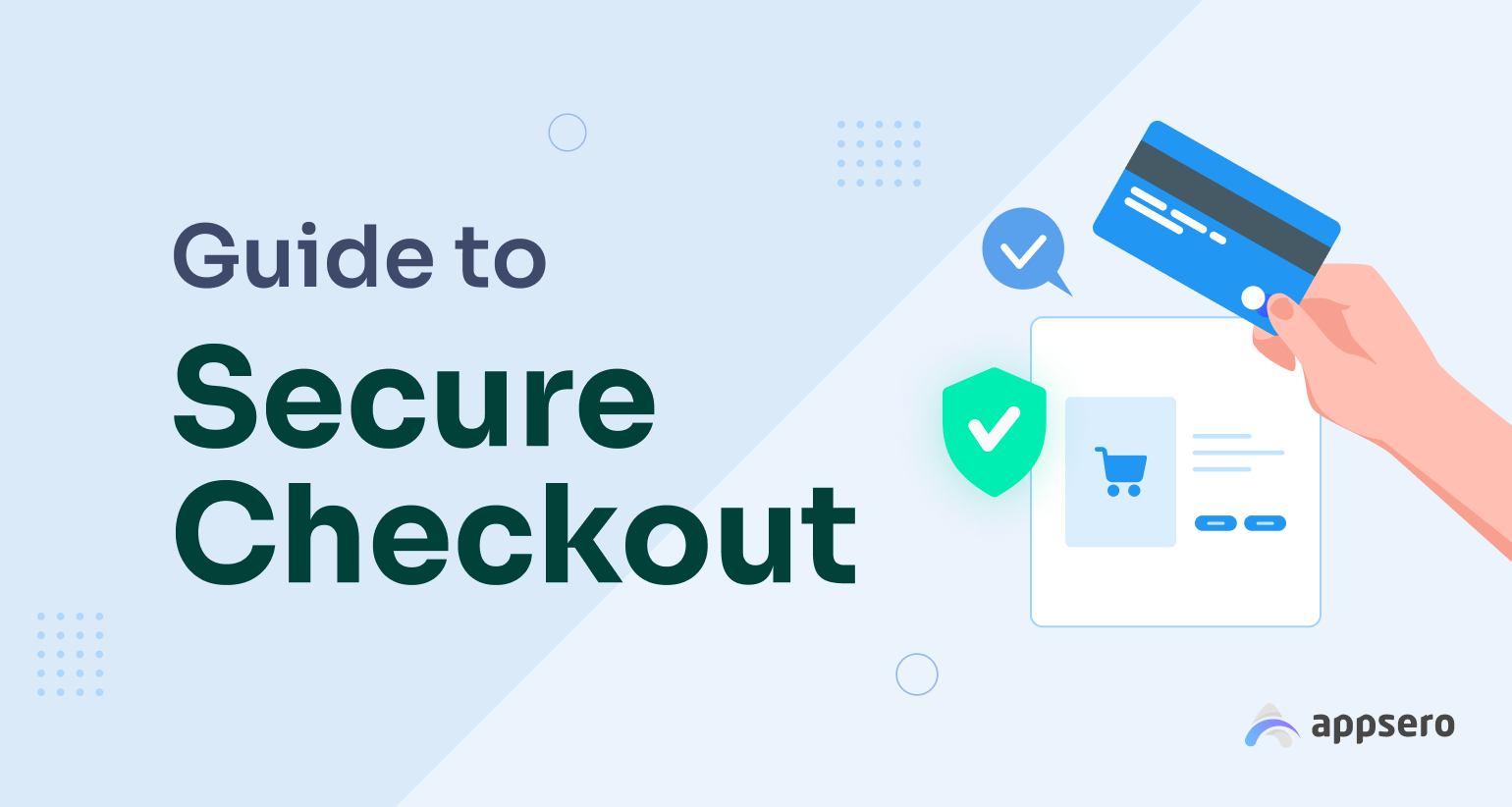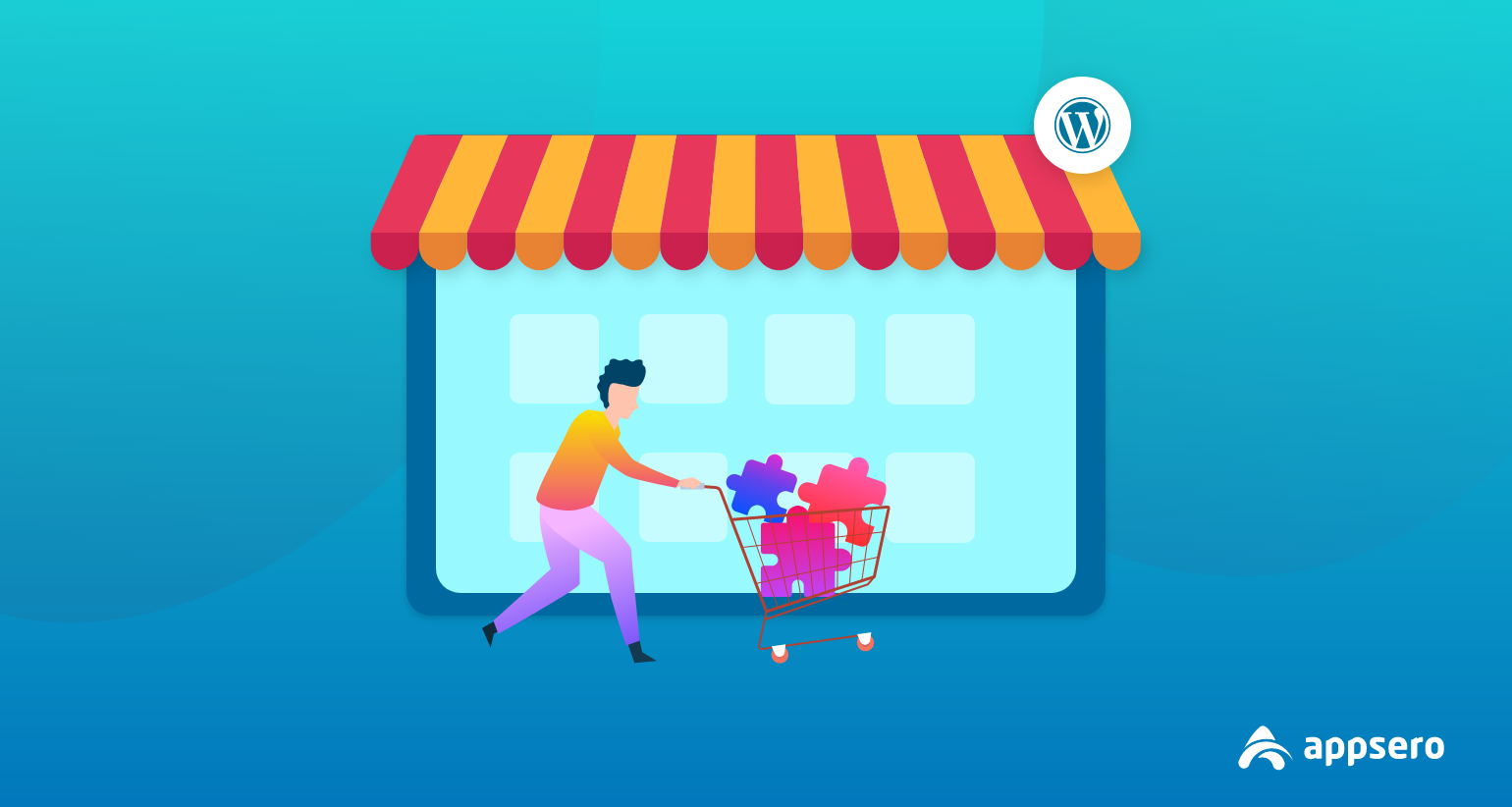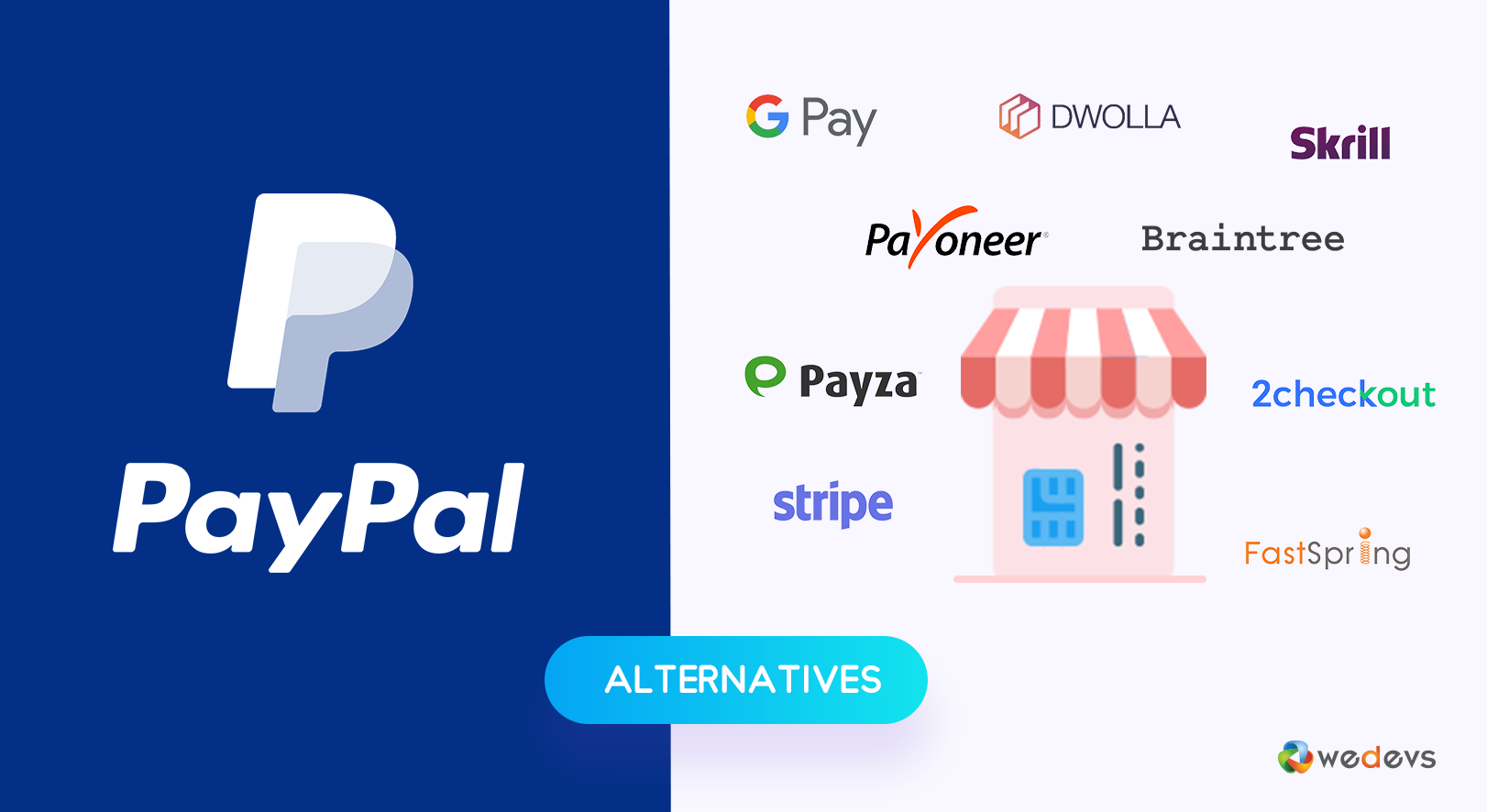
A Comprehensive Guide to Secure Checkout for Your Products
Online shopping has seen amazing growth lately. Mutual trust between vendors and customers is the base of all online transactions. That’s why it’s crucial for businesses to prioritize the security of their customers’ sensitive information during the checkout process.
As an e-commerce entrepreneur or business owner, you need to ensure a secure checkout experience to build trust, protect your customers’ personal details, and safeguard your brand reputation.
In this comprehensive guide, we will delve into the importance of secure checkout, explore common security threats that can compromise sensitive data, and provide you with a set of best practices to implement in your checkout process.
Let’s dive in and empower your business with the required knowledge to make your checkout process safe, secure, and user-friendly.
What is a secure checkout?

A secure checkout refers to the process when a customer completes an online transaction while ensuring the safety and protection of his sensitive information. It involves the transmission of payment details from the customer to the online retailer in a secure and encrypted manner.
Personal details like credit card numbers, addresses, and emails are valuable to cybercriminals. If these details fall into the wrong hands, they can be used to make unauthorized purchases, conduct fraudulent transactions, or steal funds from individuals’ accounts.
Implementing a secure checkout involves various measures such as encryption, compliance with industry standards like Payment Card Industry Data Security Standard (PCI DSS), two-factor authentication, address verification, and tokenization of payment data. Additionally, you need to educate customers about secure practices to ensure a robust and trustworthy checkout process.
Why secure checkout is important
Secure checkout is essential for both customers and businesses. For customers, it provides peace of mind knowing that their confidential information is safe. And, they’re not at risk of identity theft, fraud, or unauthorized access.
For businesses, a secure checkout instills trust in customers, enhances reputation, and helps mitigate potential financial losses or legal issues resulting from data breaches or fraudulent activities. The following list explains why secure checkout is of utmost importance:
- Protection of customer information: A secure checkout process ensures the confidentiality and protection of customer information from unauthorized access, data breaches, or theft.
- Trust and customer confidence: This trust is crucial for building long-term customer relationships and encouraging repeat purchases.
- Prevention of payment fraud: You can minimize the risk of payment fraud, including unauthorized transactions, stolen credit card details, or identity theft.
- Compliance with data protection regulations: Secure checkout ensures compliance with data protection regulations such as the General Data Protection Regulation (GDPR).
- Reduction of cart abandonment: Customers may abandon their purchase if they perceive a lack of security during the checkout process.
- Protection of business reputation: A data breach or security incident during the checkout process can severely damage a business’s reputation.
- Minimization of legal and financial risks: Implementing secure checkout measures helps mitigate potential legal and financial risks associated with data breaches, non-compliance with regulations, or customer claims of inadequate security.
- Differentiation from competitors: Customers are more likely to choose a retailer that prioritizes their security and privacy over one that lacks proper safeguards.
- Positive customer experience: By ensuring the protection of customers’ personal information, businesses create a sense of ease and satisfaction for customers, encouraging them to return in the future.
- Long-term business success: Prioritizing secure checkout is essential for the long-term success and sustainability of an e-commerce business.
In fine, we can conclude that a secure checkout process helps build customer loyalty, strengthens brand reputation, and fosters a secure and trustworthy online environment. It is a critical component of a successful and customer-centric e-commerce business.
Common security threats during checkout

When it comes to online shopping, it’s important to be aware of the common security threats that can lurk during the checkout process. We want you to have a worry-free and secure shopping experience. So, let’s dive in and uncover these common security threats during checkout:
1. Payment fraud
It happens when cyber tricksters get their hands on your payment details and use them for unauthorized purchases or fraudulent activities. This can involve stolen credit card details, identity theft, or the manipulation of payment processes to deceive customers and extract their financial information.
2. Data breaches
Data breaches occur when hackers break into a retailer’s systems and snatch sensitive customer data, including names, addresses, and even emails. It’s like a digital invasion of privacy that you need to protect your customers from. If a data breach occurs, it can lead to significant financial loss, reputation damage, and legal consequences for the affected business.
3. Phishing attacks
Phishing attacks involve fraudulent emails or websites that mimic legitimate ones, tricking you into sharing your payment details or login credentials. Falling victim to a phishing attack can result in financial loss, identity theft, or unauthorized access to customer accounts.
Also read: 7 Fool-Proof Ways to Handle and Win Stripe Disputes
A complete 13-step guide to secure checkout

1. Implement encryption-based security
Utilize SSL (Secure Sockets Layer)/TLS (Transport Layer Security) encryption to protect the transmission of customer data during checkout. This ensures that sensitive information, such as credit card details, remains encrypted and secure from potential eavesdropping.
2. Simplify the checkout process
Streamline the checkout process to minimize customer confusion and reduce the risk of abandonment. Avoid unnecessary steps or complicated forms that may frustrate customers or lead to errors.
3. Design a user-friendly interface
Create an intuitive and user-friendly interface for your checkout page. Clear instructions, error indicators, and progress indicators can help customers navigate the process smoothly and confidently.
4. Choose a reputed selling platform

When it comes to reputable selling platforms, there are several excellent options available. You need to choose the best one as per your business needs. For example, you can sell almost anything on Amazon. But, it’s not suitable for selling digital products like software.
Since we deal with mainly WordPress products, here is a list of the best-selling platforms where you can sell your plugins and themes seamlessly. Let’s take a closer look at each of them:
Easy Digital Downloads:
As the name suggests, Easy Digital Downloads is a popular platform specifically designed for selling digital products. It offers a streamlined and intuitive interface tailored for digital goods, making it an ideal choice for creators, developers, and artists looking to sell their digital products effortlessly.
WooCommerce:
As a plugin for WordPress, WooCommerce provides a robust foundation for selling both physical and digital products. It offers extensive customization options, a vast library of extensions, and seamless integration with WordPress. These functionalities make it a go-to choice for many online businesses.
Envato:
Envato operates a marketplace that specializes in digital products, including themes, templates, graphics, and audiovisual assets. It offers a platform for creators to sell their digital content to a large customer base.
FastSpring:
FastSpring is a comprehensive e-commerce platform that caters to both SaaS and software sales. It provides a range of features, including global payment processing, customizable storefronts, subscription management, and order fulfillment.
Paddle:
Paddle simplifies the selling process for digital products and subscription-based services. It offers features like payment processing, licensing management, analytics, and customer support tools. Paddle’s emphasis on maximizing revenue and reducing churn makes it an appealing choice for software companies and SaaS providers.
Gumroad:
Gumroad provides a straightforward interface for creators to sell their digital content directly to their audience, without the need for a complex setup. It offers features like customizable landing pages, payment processing, and content delivery, making it a convenient option for individual creators and small businesses.
5. Integrate multiple payment gateways
Offer a variety of trusted payment gateways to give customers flexibility and options. Different customers may prefer different payment methods, so providing multiple gateways ensures wider acceptance and convenience.
6. Choose popular payment gateways

Opt for reputable and well-established payment gateways that have a proven track record in terms of security, reliability, and customer satisfaction. Research and select gateways with strong security features and a commitment to data protection. You can choose from the following list of the best payment gateways.
- PayPal: The heavyweight champion of online payments, PayPal is trusted and widely recognized across the globe. With its user-friendly interface and robust security measures, it’s a go-to choice for many online shoppers and businesses alike.
- Stripe: This trendy and innovative payment gateway packs a punch with its seamless integration and powerful features. Stripe offers a developer-friendly platform, making it a popular choice for businesses of all sizes.
- Authorize.Net: As one of the pioneers in online payments, Authorize.Net has a solid reputation for reliability and security. It offers a range of features, including fraud detection tools and recurring billing options, making it a solid choice for e-commerce businesses.
- Braintree: Owned by PayPal, Braintree combines the best of both worlds: top-notch security and a developer-friendly platform. It boasts easy integration and supports multiple payment methods, giving your customers flexibility at checkout.
- Amazon Pay: Tap into the power of the e-commerce giant with Amazon Pay. Customers can conveniently use their Amazon account to make purchases, ensuring a seamless checkout experience and building trust through the familiar Amazon brand.
Remember, each of these payment gateways has its own strengths and features. Consider your business needs, target audience, and desired functionality when making your choice.
7. Allow users to checkout as guests
Provide an option for customers to complete their purchases without creating an account. While account creation can offer benefits, some customers prefer a quick and anonymous checkout process.
8. Make error corrections simple
Ensure that customers can easily correct errors made during the checkout process. Clear error messages and intuitive error correction mechanisms help customers rectify mistakes without frustration.
9. Guide customers to fill in required fields
Clearly indicate which fields are mandatory and provide clear instructions or examples for accurate data input. This helps prevent incomplete or inaccurate information during checkout.
10. Verify IP and billing information
Implement mechanisms to detect suspicious activity, such as checking for IP mismatches or irregular billing information. This can help flag potentially fraudulent transactions and protect customers and your business.
11. Use security layers like SCA, 3D Secure & Tokenization
Implement additional security layers such as Strong Customer Authentication (SCA), 3D Secure, and tokenization. These measures provide extra protection against fraud and unauthorized transactions.
12. Monitor and analyze suspicious activities

Utilize advanced monitoring systems to detect and analyze suspicious activities during the checkout process. This includes identifying unusual transaction patterns, suspicious IP addresses, or multiple failed attempts.
13. Educate customers about security
Provide information and tips on secure online shopping practices. Educate customers about password security, phishing awareness, and the importance of keeping their devices and software up to date.
Factors to consider when selecting a payment gateway
When it comes to selecting a payment gateway for your business, there are several important factors to consider. Choosing the right payment gateway can significantly impact your customers’ checkout experience. Here are some key factors to keep in mind:
1. Security features
Evaluate the security measures provided by the payment gateway, such as encryption, fraud detection, and PCI DSS compliance. Ensure the gateway prioritizes data protection and has a strong reputation for security.
2. Reputation and reliability
Research the payment gateway’s reputation and reliability. Consider factors such as uptime, transaction success rates, customer support, and the experiences of other businesses that have used the gateway.
3. Integration options
Assess the compatibility and ease of integration with your e-commerce platform or website. Ensure that the payment gateway offers suitable APIs, plugins, or ready-to-use integrations for seamless implementation.
4. Transaction fees and pricing
Consider factors such as transaction fees, monthly fees, setup costs, and any additional charges for specific features or services. Compare the pricing models of different providers to find the most cost-effective option for your business.
5. Payment methods supported
Check if the payment gateway supports a wide range of payment methods, including credit cards, debit cards, digital wallets (e.g., PayPal, Stripe), and alternative payment methods popular in your target market.
6. Pleasant user experience
A user-friendly and intuitive interface can streamline the checkout process and minimize cart abandonment rates. Look for features such as guest checkout options, saved payment information, and mobile optimization.
7. Scalability and growth potential
Anticipate your future needs and assess whether the payment gateway can scale alongside your business growth. Consider factors such as volume limitations, support for international transactions, and the ability to handle increased traffic during peak periods.
Choose Appsero for your next WordPress project

If you’re embarking on a new WordPress project and looking for a secure platform to manage your licenses and accept payment, you can use Appsero. Let me tell you why Appsero should be your go-to choice for your next WordPress product. Here’s why it stands out from the crowd:
- Seamless license management: Appsero handles licensing management effortlessly, ensuring smooth activation and verification for your products.
- Insights and analytics: With Appsero, you gain valuable insights into your plugin or theme’s performance, user engagement, and sales data.
- Integration with popular development tools: You can use tools like GitHub, Bitbucket, and Gitlab to manage deployment automation, version control, and user management.
- Exceptional customer support: Appsero values its customers and assists them with any queries or issues that may arise during the WordPress development journey.
- Integration with secure selling platforms: It plays nicely with Easy Digital Downloads, WooCommerce, Envato, FastSpring, Paddle, and Gumroad. These platforms make sure that your customers are experiencing a smooth and secure checkout process.
So, if you’re ready to take your WordPress projects to the next level, you can consider giving Appsero a try. It’ll streamline your development process, provide valuable insights, and empower you to deliver top-notch products to your users. Embrace the power of Appsero and unlock the full potential of your WordPress creations. Happy developing and selling!
Subscribe To Our Newsletter
Don’t miss any updates of our new templates and extensions
and all the astonishing offers we bring for you.




